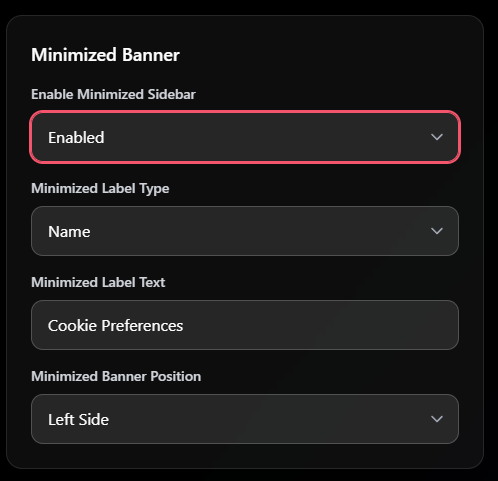Why GDPR Cookie Consent is Mandatory: A Complete Guide
Understanding the Legal Foundation
The General Data Protection Regulation (GDPR) isn't just a suggestion—it's European law that fundamentally changed how businesses handle personal data. When it comes to cookies, GDPR treats them as a form of personal data processing that requires explicit user consent.
What Makes GDPR Cookie Consent Legally Mandatory?
Under Article 6 and Article 7 of GDPR, any processing of personal data requires a lawful basis. For cookies that track user behavior, store preferences, or enable marketing, consent is the primary lawful basis. This means:
- Legal Requirement: It's not optional—it's the law across all EU member states
- Extraterritorial Effect: Applies to any website serving EU users, regardless of where your business is located
- Enforceable Penalties: Fines up to €20 million or 4% of annual global turnover
How Cookie Consent Operates Under GDPR
The Consent Requirements
GDPR defines valid consent with four key characteristics:
- Freely Given: Users must have a real choice without detriment
- Specific: Consent for different purposes must be separate and clear
- Informed: Users must understand what they're consenting to
- Unambiguous: Clear affirmative action required (no pre-ticked boxes)
Cookie Categories and Consent Requirements
| Cookie Type | Consent Required | Reason |
|---|---|---|
| Strictly Necessary | ❌ No | Essential for website functionality |
| Analytics | ✅ Yes | Processes behavioral data |
| Marketing/Advertising | ✅ Yes | Tracks users for targeting |
| Personalization | ✅ Yes | Stores user preferences |
The Technical Implementation
Cookie Handler always allows users to opt out of non-essential cookies at any time. The responsibility for disabling the minimized banner (which provides ongoing opt-out access) lies with the user. Under GDPR Article 7(3), users have the right to withdraw consent as easily as it was given, and Cookie Handler ensures this is always possible.
- Legal Reference: Article 7, EU GDPR – "Conditions for consent"
- Key Points: Recitals 32, 33, 42, 43; Administrative fine: Art. 83(5)(a); Dossier: Consent, Proof, Obligation
- Article 7(3): "The data subject shall have the right to withdraw his or her consent at any time. It shall be as easy to withdraw as to give consent."
Under GDPR, consent must be:
- Granular: Users can consent to some cookie categories but not others
- Revocable: Easy to withdraw consent at any time
- Documented: Proof of consent must be maintained
- Renewed: Re-consent may be required after reasonable periods
Why Compliance Isn't Optional
Legal Consequences
Real GDPR Fines for Cookie Violations:
- Google: €50 million (2019) - Insufficient consent mechanisms
- Multiple publishers: €20+ million collectively for cookie violations
- Growing enforcement trend with national data protection authorities
Business Impact Beyond Fines
- Trust and Reputation: Users expect privacy respect
- Competitive Advantage: Proper consent builds user confidence
- Operational Continuity: Avoid business disruption from investigations
- Partnership Requirements: Many business partners require GDPR compliance
Common Misconceptions Debunked
"My Site is Too Small to Matter"
Reality: GDPR applies to ANY website processing EU user data, regardless of size.
"Cookie Walls are Compliant"
Reality: Blocking access unless users accept all cookies violates GDPR's "freely given" requirement.
"Implied Consent is Enough"
Reality: GDPR requires explicit, unambiguous consent—continued browsing doesn't count.
"I Can Use Legitimate Interest for Everything"
Reality: Legitimate interest has strict requirements and doesn't apply to most marketing cookies.
Best Practices for GDPR-Compliant Cookie Consent
1. Implement Proper Consent Management
- Use a compliant cookie banner with granular controls
- Provide clear, plain-language explanations
- Ensure "Reject All" is as prominent as "Accept All"
- Don't use pre-ticked checkboxes
2. Maintain Consent Records
- Log when consent was given
- Record what was consented to
- Document how consent was obtained
- Enable easy consent withdrawal
3. Regular Compliance Audits
- Review cookie usage quarterly
- Update privacy policies when adding new cookies
- Train team members on GDPR requirements
- Monitor consent rates and user feedback
The Business Case for Proper Consent
Beyond Compliance: Strategic Benefits
Enhanced User Trust: Transparent consent builds stronger user relationships
Better Data Quality: Consensual data is more valuable and actionable
Reduced Legal Risk: Proactive compliance prevents costly violations
Competitive Differentiation: Privacy-first approach attracts conscious consumers
ROI of Proper Implementation
Studies show that websites with clear, user-friendly consent mechanisms often see:
- Higher consent rates (60-80% vs 20-40% for poor implementations)
- Improved user engagement
- Better brand perception
- Reduced legal and operational risks
Conclusion: Compliance as Competitive Advantage
GDPR cookie consent isn't just a legal checkbox—it's a fundamental business practice that protects users, builds trust, and ensures sustainable operations in the digital economy.
The question isn't whether you need GDPR-compliant cookie consent (you do), but how efficiently you can implement it to protect your business while respecting user privacy.
Ready to ensure compliance? Cookie Handler provides everything you need for GDPR-compliant cookie consent with 1-click implementation and ongoing compliance monitoring.
